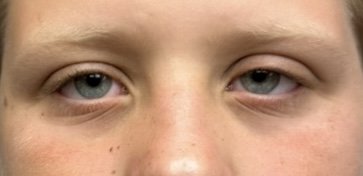Always Tired? The Scoop on Sleep Disordered Breathing.
Do you constantly feel exhausted, no matter how much sleep you get? If so, sleep-disordered breathing (SDB) might be the culprit. SDB refers to a range of conditions that affect normal breathing patterns during sleep, leading to poor rest and chronic fatigue. Here's a breakdown of what SDB entails and how it could be affecting your energy levels: Sleep-Disordered Breathing is a continuum that includes mouth breathing, snoring, upper airway resistance, and sleep apnea. You can see the increase in severity on the scale below.
sleepapneamatters.com
Taking action could greatly improve your sleep quality—and your energy levels during the day.
〰️
Taking action could greatly improve your sleep quality—and your energy levels during the day. 〰️
Why am I ALWAYS tired?
When breathing is interrupted during sleep, your body is forced to repeatedly wake itself to restore proper airflow, even if you're not consciously aware of it. This disrupts the deeper, restorative stages of sleep. As a result, even if you spend hours in bed, you’re not truly resting, leading to a constant feeling of fatigue.
SDB can be caused by multiple factors and starts as simple as breathing through the mouth at night instead of through the nose. Other reasons it can occur: lack of tongue space, having teeth extracted for orthodontics (creates a smaller mouth), mouth breathing, tongue restrictions, high vaulted palate, low tongue tone, weight gain, enlarged tonsils and/or adenoids, uncontrolled allergies. If sleep-disordered breathing is suspected, you should discuss your symptoms with a medical professional who specializes in this area such as a dentist, primary care physician, sleep specialist, ENT, or an orofacial myofunctional therapist. A sleep study is the gold standard to diagnose the severity of your sleep disorder.
What’s the big deal? Sleep-disordered breathing not only causes you to run on empty, but it is also a risk factor for high blood pressure, stroke, cancer, heart disease, diabetes, and Alzheimer’s.
Symptoms: Teeth grinding, snoring, waking up gasping for air, bad dreams, chronic fatigue, dental crowding, congestion, bed-wetting, waking multiple times each night to use the bathroom, stirring easily at night, insulin resistance, low motivation, dark circles under the eyes, and/or TMJ issues.
How does myofunctional therapy help with sleep-disordered breathing? A comprehensive evaluation is needed to determine the root cause of the issue. Once identified, your myofunctional therapist can put together a patient-specific plan that aims to help you achieve 100% nasal breathing 100% of the time and teaches exercises that strengthen weakened tongue muscles that are likely a contributing factor. A myofunctional therapist can also help identify other specialists that may be needed to help achieve proper breathing and oral rest posture.
Looking to achieve better sleep and wake feeling well-rested? Take our free Sleep Assessment and schedule a complimentary 30-minute consultation today.
Want to learn more? I highly recommend Dr. Mark Burhenne's book 8 Hour Sleep Paradox available on Amazon


